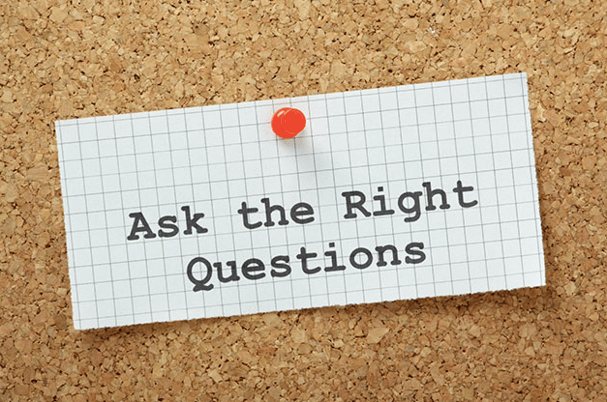
It’s long been a topic of jokes that dentists often ask patients questions during a dental exam, while their mouths are full of instruments and there’s no way they can clearly answer. Aside from this scenario, it’s also important to make sure you ask your dentist questions during your visit.
As a dental patient, it’s in your best interest to get thoroughly involved in your own oral health care by asking pertinent questions and seeking out guidance from your dentist at each visit. In most cases, the dentist is both willing and able to answer any question you may have for them.
Next time you visit the dentist, come prepared with a few specific questions that show your dentist you’re interested in learning all you can about how to best care for your oral health. Here are some suggestions to get you started:
Could I be brushing my teeth better?
"Next time you visit the dentist, come prepared with a few specific questions that show your dentist you’re interested in learning all you can about how to best care for your oral health. "
This is a great question to ask, as most hygienists and dentists may not suggest changes if your brushing habits appear to be “good enough.” But, by asking whether you could do any better, you open the door for them to make helpful suggestions for even small improvements.
For instance, many patients generally do a good job brushing their teeth, but they could be a little more careful about accessing the hard-to-reach spots in the far back, or cleaning thoroughly along the gumline. While your hygienist may be expecting to concentrate on these areas, if you focus on improving your brushing methods now, your teeth will be healthier, and your dental hygienist will have an easier time cleaning them next time. For more tips, see the top four secrets of brushing you might be missing.
Can you show me the right way to floss?
Don’t feel silly asking your dental professional this question. The fact is, many people do it wrong. An incorrect flossing motion can fail to remove bacteria and can do damage to the sensitive gum tissue between teeth, leading to bleeding, irritation, and swelling.
Instead of pushing floss directly up to the gum line, think of the process as cleaning each side of the tooth. This gentler, back and forth motion is both more comfortable and more effective. But it’s not necessarily easy to maneuver the floss well around every tooth, which is why asking your hygienist or dentist to demonstrate can be so helpful.
Is there anything I need to watch out for in the next six months?

This is usually a question the dentist will answer without any prompting, but it’s always helpful to ask just in case.
Many potentially serious health conditions can be diagnosed through an oral examination like you receive at a routine dental cleaning. This can include conditions specific to the teeth and gums, but also other wider systemic issues like high blood pressure, diabetes, and heart disease.
If your dentist has noted something during the examination to monitor, asking this question could prompt him or her to mention the possibility “just in case,” which puts you in a better position to decide what to do about it.
When should I come back?
99.9% of the time, the answer will be, “in six months.”
It’s important to ask this even though you may know the answer because it lets your dentist know you care about your oral health, and it makes you accountable to follow through on the every-6-months rule.
So remember, next time you go to the dentist, don’t let your oral health providers ask all the questions while you’re rinsing and spitting. Ultimately, your dentist is the expert on caring for your mouth, so it can be a great benefit to you to ask questions and become fully involved in your own oral health.
One final question you may ask your dentist may relate to securing affordable dental care. To find a dentist who offers options for dental discounts like affordable discount dental plans, check out our provider listing here.

